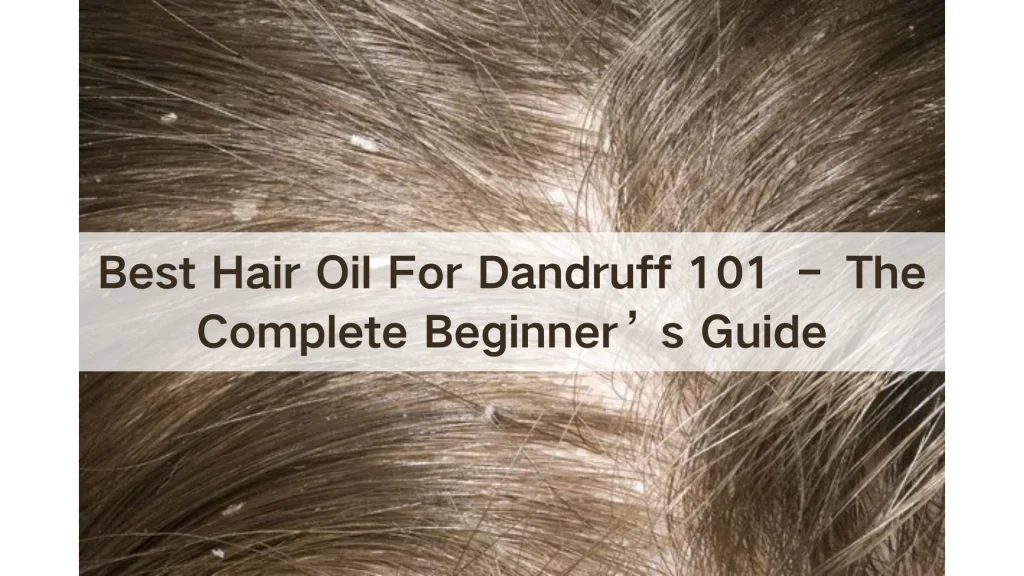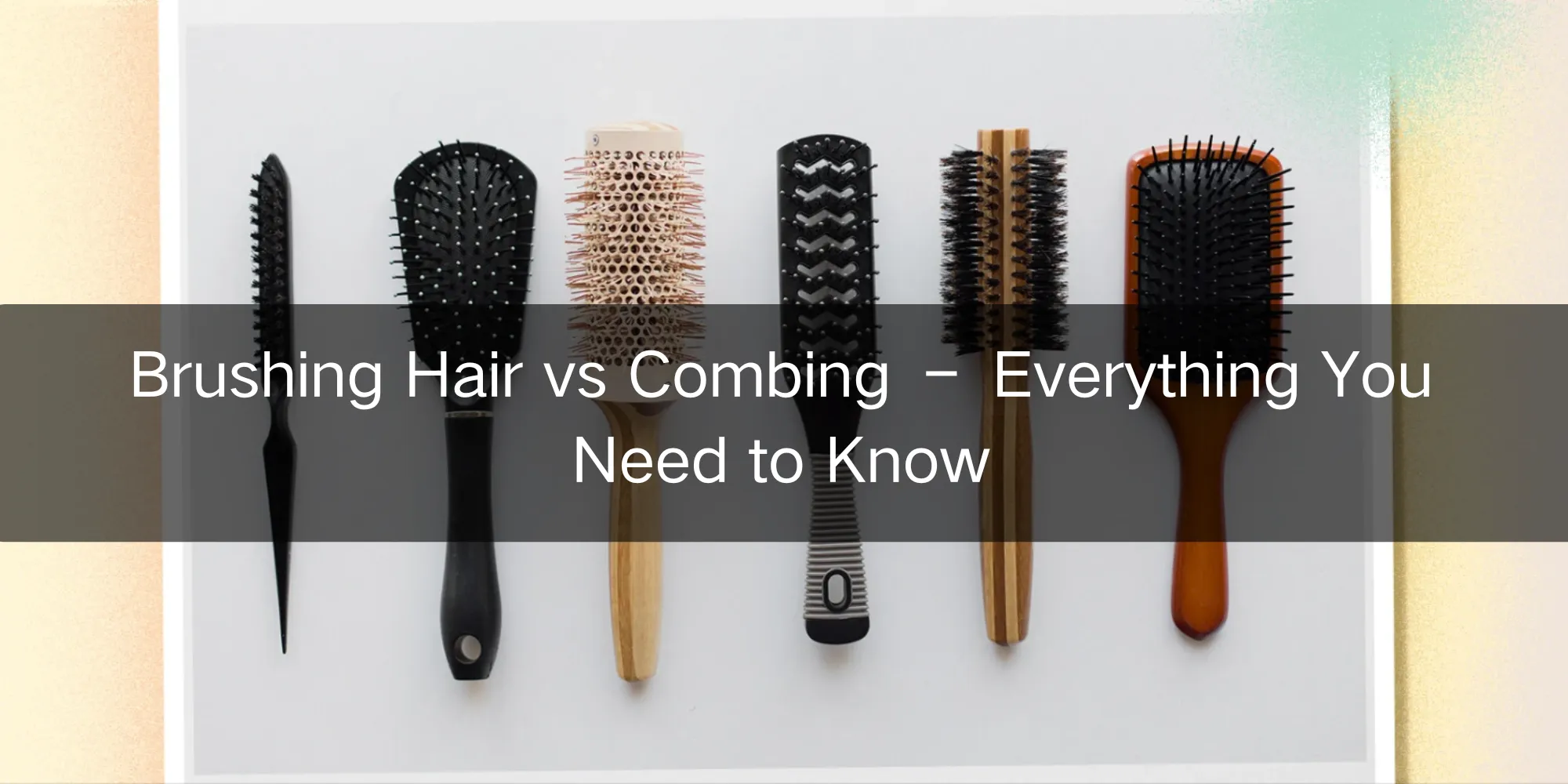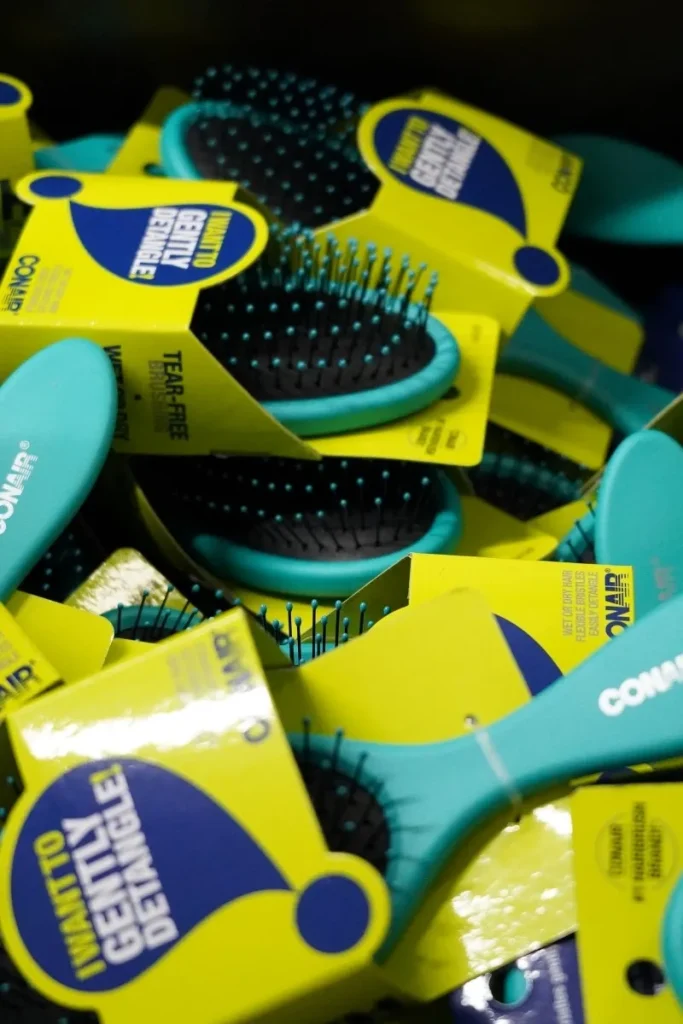Managing dandruff or a dry scalp can be annoying- it causes itchiness, flakes and even embarrassment. Otherwise, it can deteriorate the condition of the scalp and the quality of hair. This is why the best hair oil for dandruff is important. The proper oil will calm irritation, minimize flakes, and hydrate. This guide will cover the causes of dandruff, the benefits of oils, and a selection of the 10 best oils. There will also be do-it-yourself mixes, ideas on use, and considerations to aid your choice of what will suit you most.
What Is Dandruff?
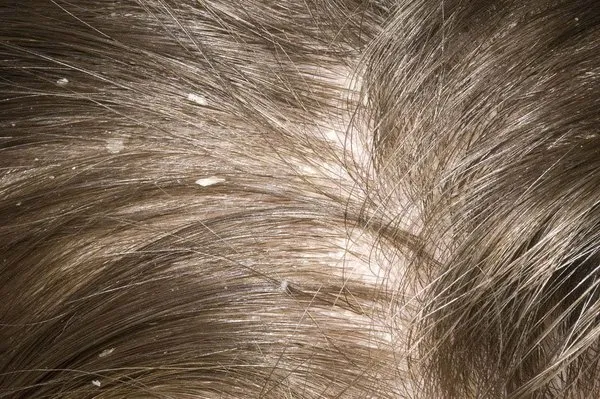
Dandruff is a scalp condition that is common and is as a result of excess growth of a Malassezia fungus or seborrheic dermatitis. It can be easily confused with dry scalp, however, they are different. Dry scalp is not moisturized, and dandruff is caused by the overproduction of oil and irritation.
| Feature | Dry Scalp | Dandruff |
|---|---|---|
| Cause | Lack of moisture | Fungal reaction (Malassezia) |
| Flake type | Small, dry, white | Larger, oily, clumped white-yellow |
| Scalp type | Dry | Oily |
| Itch level | Mild to moderate | Moderate to severe |
| Appearance on hair | Loose flakes | Clumps on scalp and hair strands |
Common Causes of Dandruff
- Fungal overgrowth (Malassezia):This yeast is normally present on your scalp but may overgrow and cause inflammation, itchiness, and white or yellow scales.
- Dry scalp and dehydration:Lack of moisture on the scalp makes it tight and irritated, resulting in small, dry flakes and mild itchiness.
- Over-production of oil:A greasy scalp provides yeast with a perfect environment to thrive in and it also collects dead skin cells, which makes dandruff greasy.
- Poor hygiene or irregular shampooing:When you do not wash your head, the oil, sweat and product build-up on your scalp leading to flakes and bad smell.
- Harsh hair products:Aggressive shampoos or chemical-based products will remove the natural oils, leaving the scalp irritated, dry and flaking.
- Skin disorders (eczema, psoriasis):These are inflammatory skin conditions that can frequently involve the scalp and cause thick scales, redness, and continual symptoms of dandruff.
Types of Dandruff
- Dry dandruff: What you will experience is the small, white and powdery flakes which come off your head easily. It’s usually due to dryness, change in weather or rough shampoos.
- Oily dandruff: When your head feels greasy and the scales are thick and yellowish, excess sebum is probably the cause. This kind is likely to cling to your hair and head.
- Fungal dandruff: This is caused by an overproduction of Malassezia, a yeast that inhabits your scalp. It makes the scalp inflamed, itchy, and leaves stubborn patches of dandruff.
- Dandruff caused by product buildup: Styling products can also cause dandruff in case you use them frequently, clogging the follicles. This causes flaking which resembles dandruff but needs to be cleansed deeply.
How Best Hair Oil For Dry Scalp And Dandruff Help Combat Dandruff?
Hair oils enable you to fight dandruff, as they intensively nourish your scalp and make it less dry and flaky. Numerous natural oils possess antifungal and antibacterial qualities that attack the underlying causes such as Malassezia. With the correct oil, you also condition your scalp with necessary nutrients. This increases the flow of blood, which promotes healthy hair growth. Oils also create a shield against pollution, harsh weather and other environmental damages on your scalp.
Top 10 Best Hair Oils for Dandruff – In-Depth Review
1. Tea Tree Oil
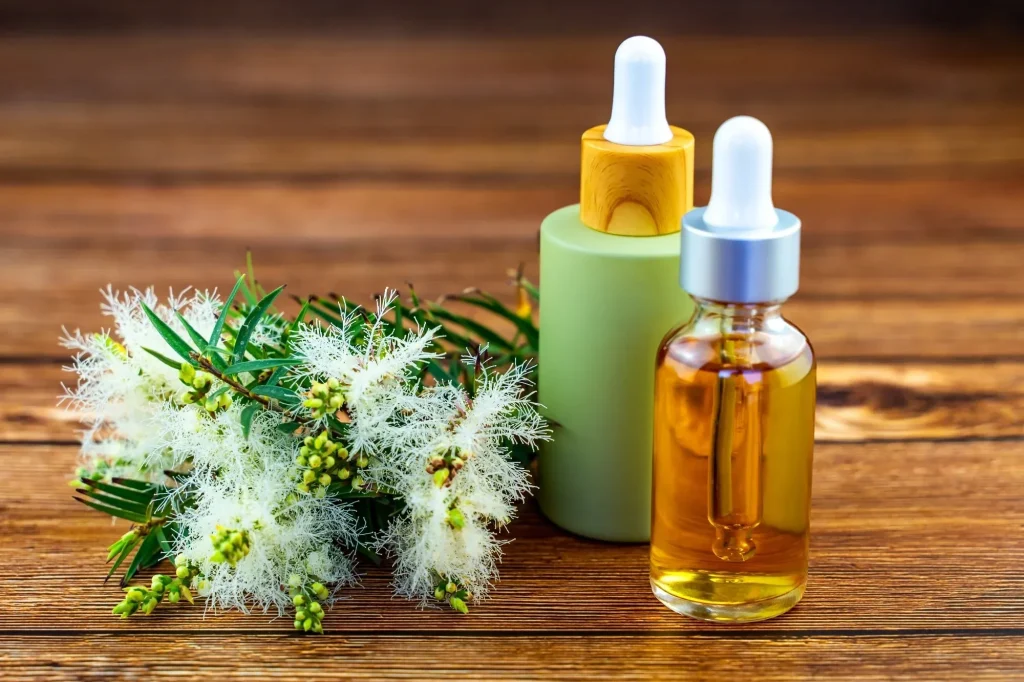
Tea tree oil is a potent essential oil derived out of Melaleuca alternifolia plant. It contains high amounts of terpinen-4-ol that makes it highly antifungal and antibacterial. You can count on it to minimize the Malassezia yeast that frequently brings about dandruff. Tea tree oil should always be diluted with a carrier oil such as coconut or jojoba oil. Apply it to your scalp 2-3 times weekly to get the best results. It relieves itching, removes flakes, and promotes a clean scalp. It is present in a lot of scalp treatments and anti-dandruff shampoos that aim to soothe irritation and prevent dandruff in a natural way.
2. Coconut Oil
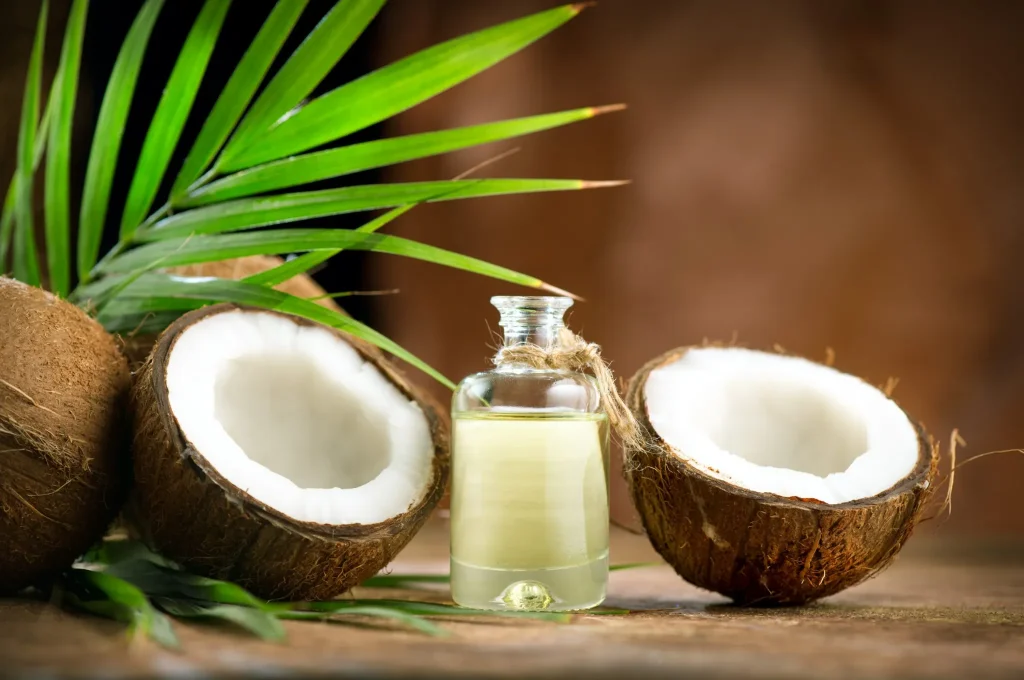
Coconut oil is highly moisturizing and contains a high amount of lauric acid, which has a potent antimicrobial effect. You will be amazed at how effective it is in the treatment of dry flaky scalp conditions. It goes deep into the skin to moisturize and restore broken skin barriers. Warm coconut oil and massage your scalp. Soak it at least 30 minutes or leave it on overnight and then wash. Apply two to three times per week. It can not only make flakes softer but also make it less itchy and help make hair healthier. The oil is most effective with dry or sensitive scalp that is easily irritated.
3. Neem Oil
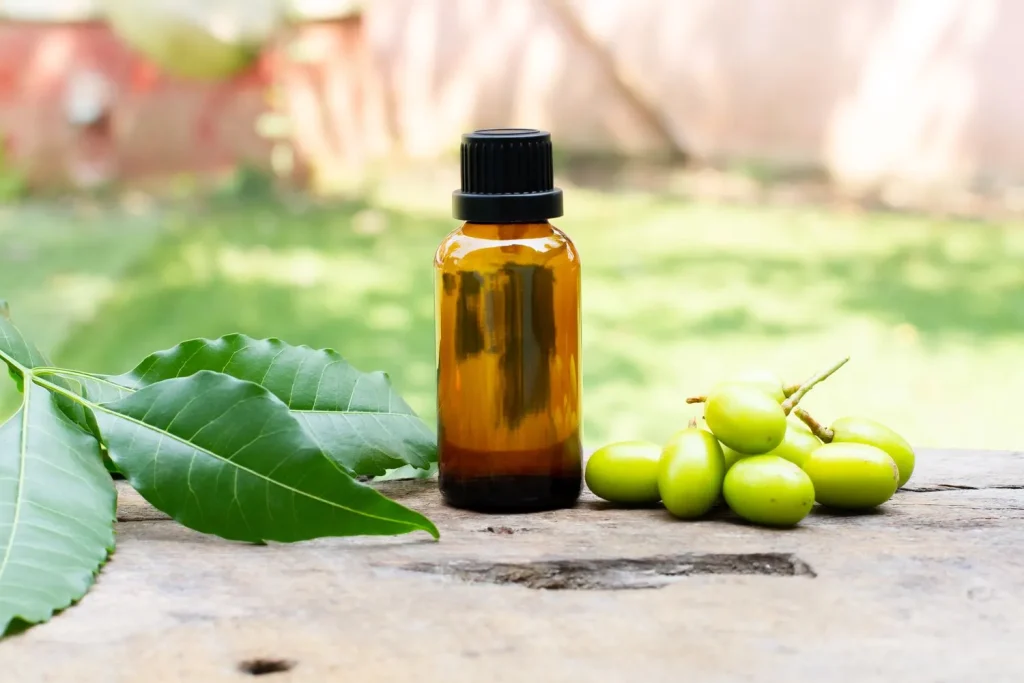
Neem oil is pressed out of the seeds of the neem tree and has been used for centuries as a natural remedy to scalp problems. It is full of azadirachtin and nimbin which have been known to have strong antifungal and antibacterial properties. Neem oil can be depended upon to combat fungally-caused dandruff. Dilute it with a carrier oil such as olive or coconut to reduce its potency and strong smell. Massage into your scalp twice a week and rinse after 30-60 minutes. It purifies the scalp, decreases inflammation, and gets rid of flakes. This oil is particularly helpful when you have a stubborn and infective dandruff.
4. Argan Oil
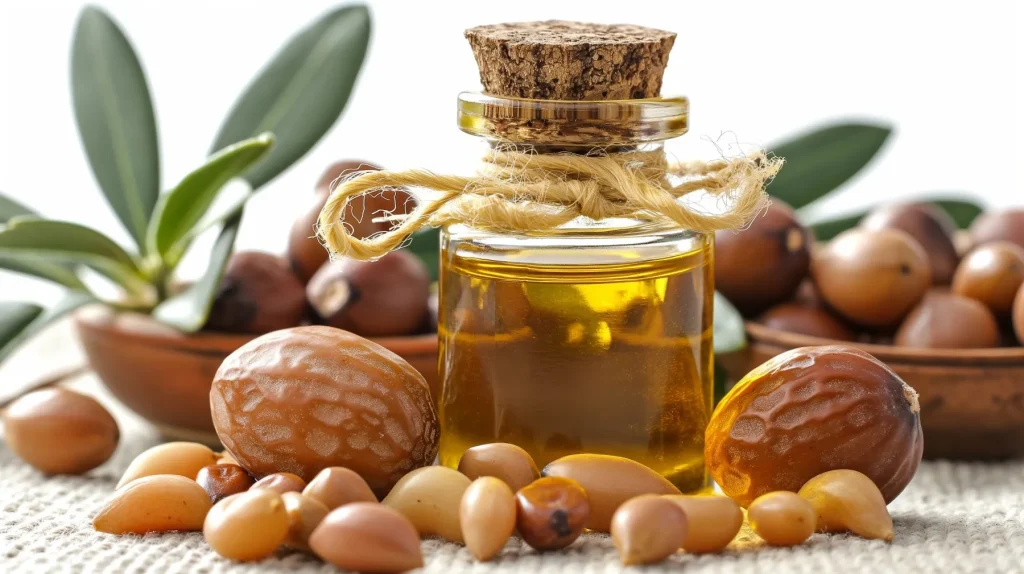
Argan oil is obtained by pressing the kernels of the argan tree in Morocco and it is a source of Vitamin E, fatty acids and antioxidants. It is a light oil that aids in soothing inflammation and intensively hydrates your scalp without being greasy. When your dandruff is mild and due to dryness or sensitivity, then this oil will bring balance to your scalp. Put a few drops on your scalp and massage. Daily or alternate-day usage is safe. You will see that there is less flaking and an improved hair texture overall. Argan oil is the one you need when you desire the nourishment but cannot stand the weight of the thicker oils.
5. Castor Oil
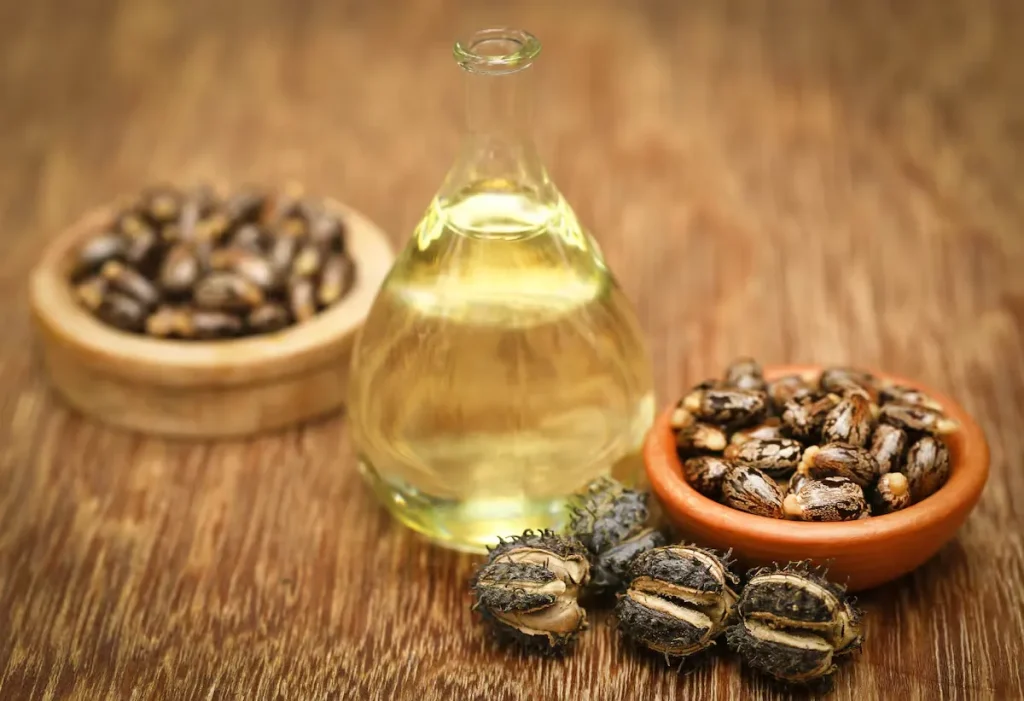
Castor oil is viscous and nutrient-filled with a high amount of ricinoleic acid, which possesses antifungal and anti-inflammatory properties. You may apply it to enhance the flow of blood to your head to combat dandruff and promote hair growth. But due to its thick texture it is preferable when mixed with lighter oils such as coconut or jojoba. Apply and massage into your scalp once or twice a week and rinse well. It locks in hydration, minimizes scales, and enhances a healthier scalp microenvironment. Castor oil will provide deep relaxation to your irritated dry skin.
6. Jojoba Oil
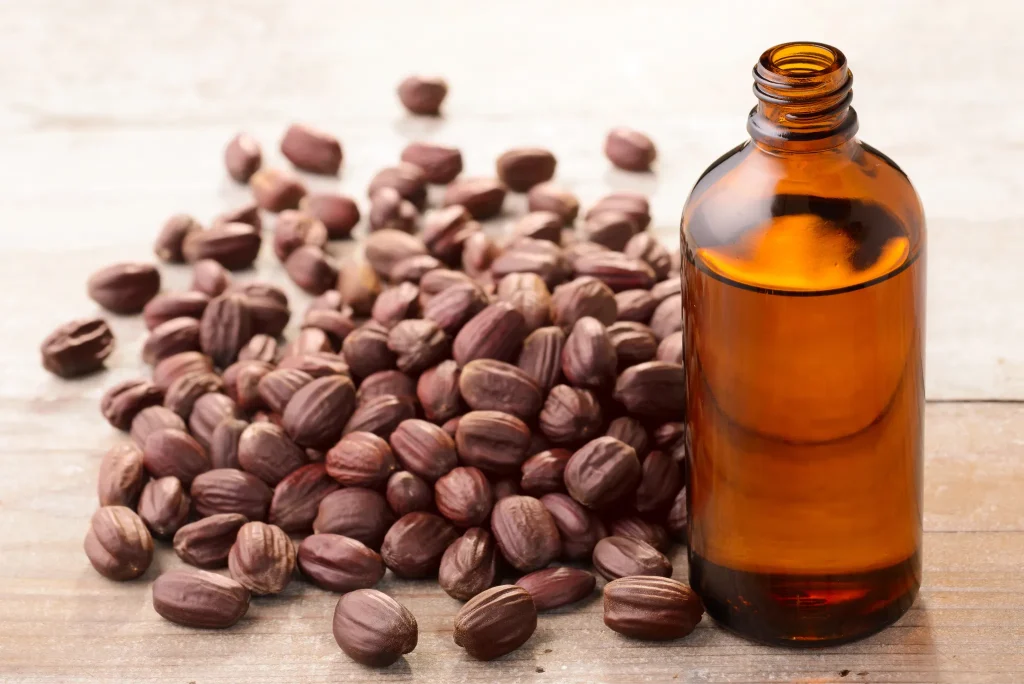
Jojoba oil is highly similar to your scalp natural sebum and, therefore, it is ideal to balance your oil production and de-clog your hair follicles. It has vitamins B, E and necessary minerals which moisturize the skin and soothe itchiness. In case you are a victim of dry flakes and build-up, this oil can be used to loosen up residues and leave you comfortable again. Put a little on your scalp, massage and leave on 20 to 30 minutes then rinse. Apply two to three times a week. It is sensitive-scalp safe and perfect to keep the scalp clean and hydrated.
7. Olive Oil
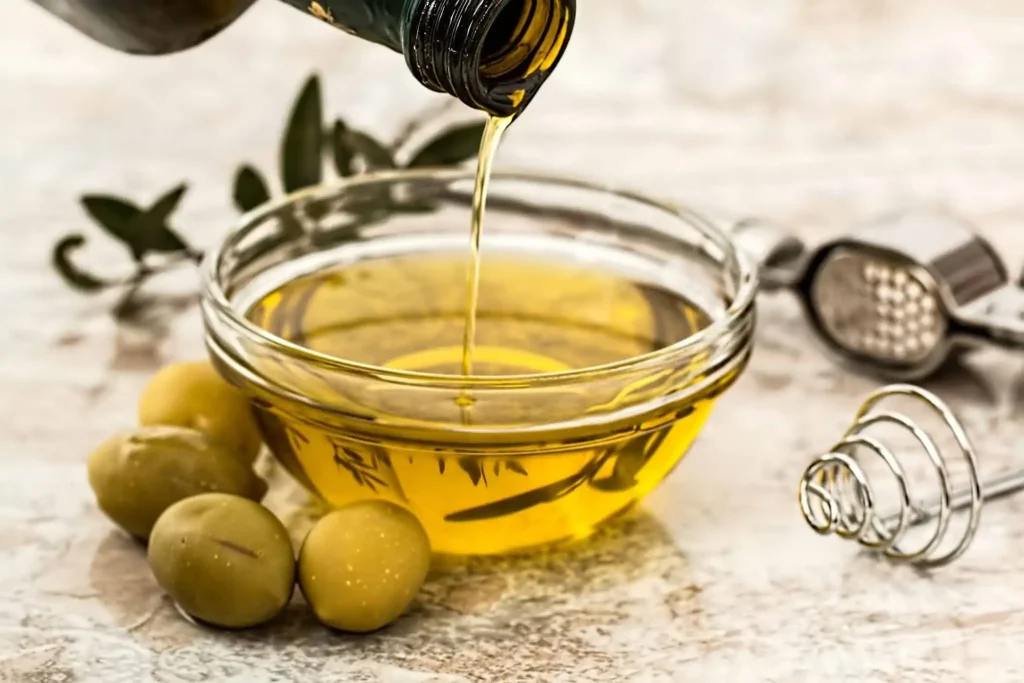
Olive oil is a viscous nutrient-packed oil that contains antioxidants, Vitamin E, and oleic acid. You will also find it useful as a natural conditioner, loosening scaly areas and softening rough skin. Olive oil will assist in case your dandruff is caused by dryness or coarse conditions of the scalp. Gently heat the oil and massage it into your scalp liberally. Apply and leave on 30 45 minutes and rinse. Apply once or twice weekly. It intensely conditions the scalp, minimizes flaking, and promotes long-term moisture retention to keep hair healthier.
8. Amla Oil
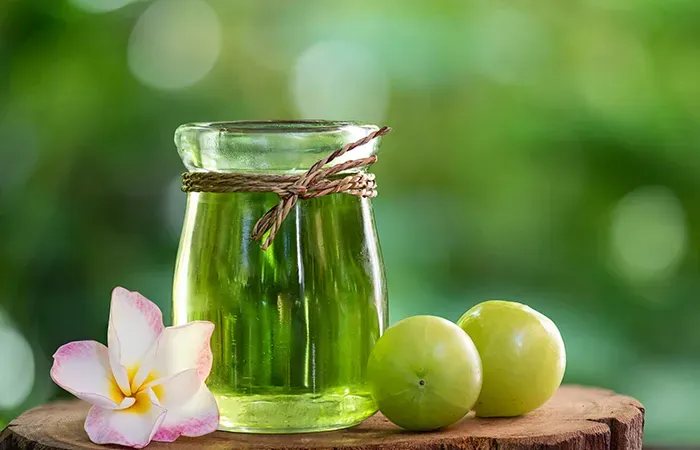
Amla oil is Indian gooseberry oil which is rich in Vitamin C, polyphenols, and antioxidants. You may apply it to your scalp to calm it down, avoid fungus, and relieve irritation due to dandruff. It also reinforces the hair roots and helps to repair the scalp. Rub it directly into your scalp and lightly massage, leave on an hour then wash. Two applications a week are best. Amla oil is light and non-greasy and ideal to soothe itchy flaky skin. It also promotes thicker, lustrous hair with continued use.
9. Rosemary Oil
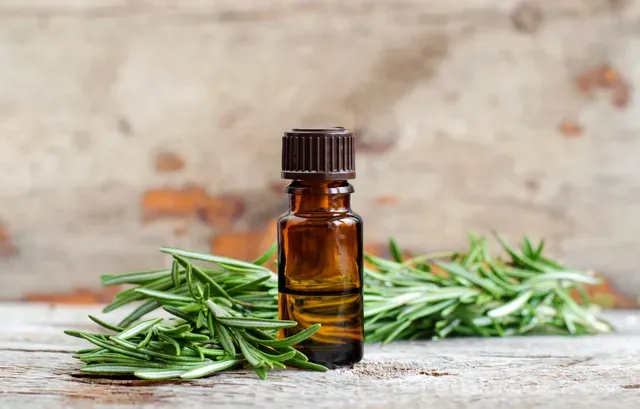
Rosemary oil is a strong essential oil that has inherent antifungal and anti-inflammatory agents. It also enhances the flow of blood in your head and makes your scalp healthier, thereby lessening the occurrence of dandruff, particularly that which is brought about by fungus or unhealthy scalp. It will have to be diluted in a carrier oil to prevent irritation. Apply the mixture to your scalp 2-3 times weekly and massage. It exfoliates the scalp, boosts hair growth and makes your scalp feel clean. Its minty smell has a cooling sensation and thus it is ideal in relieving itch and in enhancing scalp hygiene.
10. Peppermint Oil
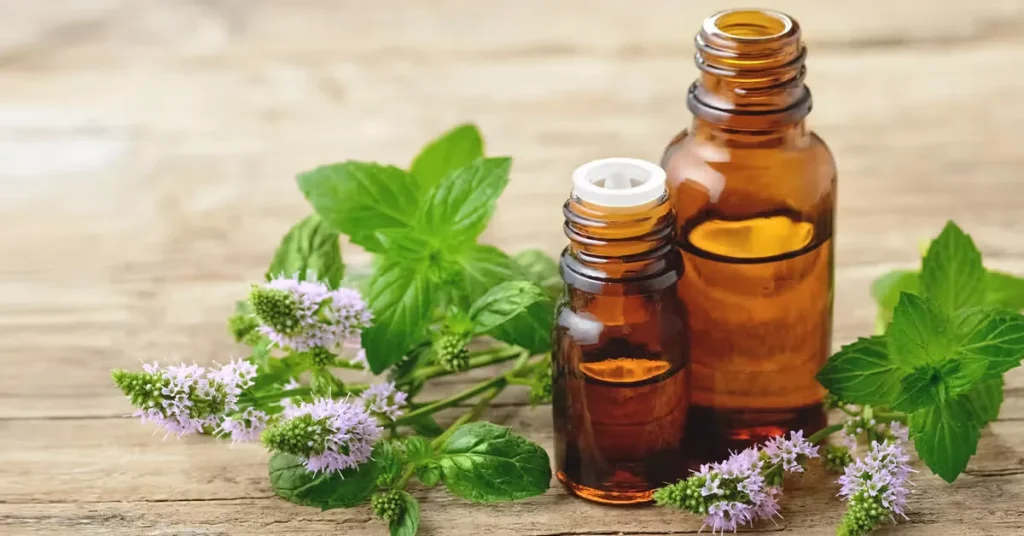
Peppermint oil also has a cooling effect that will instantly relieve an itchy irritated scalp. It has menthol and antimicrobial agents which assist in combating the fungi associated with dandruff. Apply it by diluting a few drops in a carrier oil and rubbing it into your scalp. Only apply it twice a week to prevent over-sensitization. Peppermint oil has anti-inflammatory properties, it clears the scalp build up and refreshes your skin. You will love the way it soothes the burning and itching sensation that usually accompanies dandruff and leaves your scalp lighter and healthier.
| Oil Name | Oil Composition | Perks (Benefits) | Usage Frequency | Best For |
|---|---|---|---|---|
| Tea Tree Oil | Terpinen-4-ol, cineole, α-terpineol | Antifungal, antibacterial, soothes itching, reduces flakes | 2–3 times per week | Oily or fungal dandruff-prone scalps |
| Coconut Oil | Lauric acid, caprylic acid, vitamin E | Deeply moisturizes, repairs skin barrier, reduces flaking | 2–3 times per week | Dry, flaky, and sensitive scalps |
| Neem Oil | Azadirachtin, nimbin, fatty acids | Strong antifungal, purifies scalp, treats stubborn dandruff | 2 times per week | Infected or persistent dandruff |
| Argan Oil | Vitamin E, oleic acid, linoleic acid, antioxidants | Lightweight, hydrates, reduces dryness and irritation | Daily or alternate days | Mild dandruff due to dryness or product sensitivity |
| Castor Oil | Ricinoleic acid, omega-6 fatty acids, vitamin E | Promotes blood flow, relieves irritation, locks in moisture | 1–2 times per week | Severely dry, flaky, and irritated scalps |
| Jojoba Oil | Vitamins B, E, zinc, copper, fatty alcohols | Mimics natural sebum, unclogs pores, relieves itchiness | 2–3 times per week | Sensitive scalps with buildup or dryness |
| Olive Oil | Oleic acid, squalene, vitamin E, antioxidants | Deep conditioning, loosens flakes, enhances moisture retention | 1–2 times per week | Dry and coarse scalp types |
| Amla Oil | Vitamin C, polyphenols, flavonoids, tannins | Soothes scalp, repairs, prevents fungal growth, thickens hair | 2 times per week | Itchy, flaky scalp and weak roots |
| Rosemary Oil | Rosmarinic acid, cineole, camphor, borneol | Antifungal, promotes circulation, exfoliates scalp | 2–3 times per week (diluted) | Fungal or inflammation-based dandruff |
| Peppermint Oil | Menthol, menthone, limonene, flavonoids | Cools scalp, clears buildup, relieves itching | 2 times per week (diluted) | Itchy, inflamed, or irritated scalp from dandruff |
Choosing a Best Essential Oils for dandruff - Considerations
- Understand your scalp type:On a dry scalp, oils such as coconut or olive, which are highly nourishing, will be suitable. On oily or sensitive scalps, stick to lighter products such as jojoba or argan to prevent residue.
- Check the severity of dandruff: Light flakes can be treated with hydrating oils whereas severe dandruff needs antifungal oils such as tea tree or neem. Always consider the strength of the oil with the state of your scalp.
- Think about allergies or sensitivities:There are oils or combinations of essential oils that can cause a reaction. Test on a small area first to prevent redness, itching or swelling.
- Evaluate fragrance and formulation:Commercial mixtures will typically have synthetic fragrances or additives. When you are sensitive to odors or chemicals, use organic, unscented oils.
- Cold-pressed vs. refined:Cold-pressed oils are more potent because they contain natural nutrients and antioxidants. The refined oils might be more refined and less beneficial to treat the scalp.
DIY Anti-Dandruff Oil Blends
Recipe 1: Tea Tree, Coconut, Neem Oil
Combine 3 drops of tea tree oil with 2 tablespoons of coconut oil and 1 teaspoon of neem oil. This is a strong combination which attacks the Malassezia fungus, minimizes flakes and soothes inflammation. You have a balanced mixture that eliminates dandruff and leaves your scalp hydrated and healthy.
Recipe 2: Jojoba, Peppermint, Rosemary Oil
Add 2 tablespoons of jojoba oil to 3 drops of peppermint and rosemary essential oils. This light blend is weightless and replicates your own scalp oils, it also reduces itch and increases blood circulation. It aids in de-clogging follicles and promotes healthy hair growth as well as preventing dandruff.
Recipe 3: Olive, Amla, Castor Oil
Mix 1 tablespoon olive oil, amla oil and castor oil each for a luxurious, replenishing treatment. This blend will decrease inflammation, moisturize dry areas, and fortify the hair roots. It is most effective with thick hair types and dry scalps that require intense repair.
Best Scalp Oil For Dandruff - Application & Storage Tips
You can warm the oil a little before use and massage your scalp with your fingertips. To increase absorption, massage 5 to 10 minutes and leave overnight or at least an hour. Keep your combinations in dark glass bottles with air tight caps, out of heat and sunlight. Apply 2-3 times a week to see the difference.
Conclusion
Finding the best hair oil for dandruff might be an easy, yet effective way to start caring about your scalp. You now know how various oils (tea tree, neem, jojoba, or olive) address different causes of problems, whether dryness or fungal overgrowth. With the regular use, you will be able to soothe irritation, minimize flakes, and enhance the overall quality of hair. The most important factor is consistency, so be sure to cleanse, moisturize and apply SPF daily and correctly. When you have severe or chronic dandruff, see a dermatologist to get a prescription of a customized solution. Before you run off to remedies loaded with chemicals, try natural oils. They can perform miracles, but only when utilized carefully and thoroughly.

